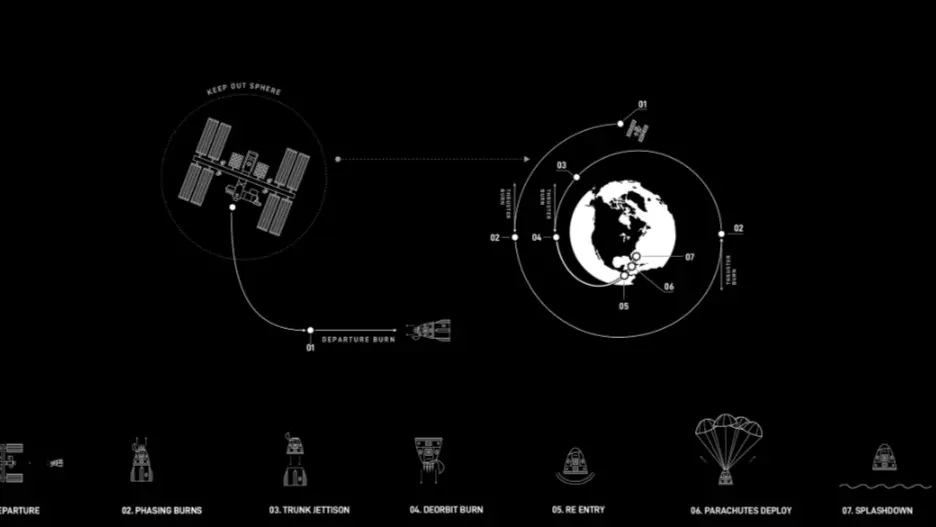Updated 18 March 2025 at 19:43 IST
Baby Feet to Bone Deterioration: Why Sunita Williams' Return to Earth Won't Be An Easy Walk | Expert's Take
NASA astronaut Sunita Williams may face muscle atrophy, bone loss, vision issues, and immune changes after her prolonged space stay, experts weigh in.
- World News
- 3 min read

New Delhi: NASA astronauts Sunita Williams and Butch Wilmore are set to return to Earth aboard a SpaceX capsule on Tuesday, marking the end of their dramatic nine-month mission. Their journey, which began with a problematic Boeing test flight, will conclude with a scheduled splashdown off the Florida coast, weather permitting. While the world celebrates their return, experts warn that prolonged stays in space can lead to significant physiological challenges for astronauts.

Sunita Williams May Get ‘Baby Feet’
One of the lesser-known effects is the development of ‘baby feet,’ a condition caused by extended exposure to weightlessness, which results in softer soles due to the lack of pressure on the feet.
What Does 'Baby Feet' Mean?
A former NASA astronaut explained that astronauts may experience ‘baby feet’ after prolonged periods in space. This condition refers to the hypersensitivity and softness in the soles of the feet due to weightlessness.
In space, astronauts rely on their hands to move around, using surfaces to push themselves instead of walking. Since their feet do not bear weight or experience friction, foot callouses diminish, and the thick outer layer of skin gradually softens.
Advertisement
Upon returning to Earth, astronauts may find their feet unusually tender and sensitive as they readjust to walking under normal gravity.
Effects of Prolonged Space Travel on the Human Body
Meanwhile, Dr. Jimmy Prabhakar, Senior Consultant in Internal Medicine and Diabetology at Rela Hospital Chennai, spoke to Republic TV about the potential health risks astronauts face after extended missions in space. He highlighted several key concerns. Read below:
Advertisement
Muscle and Bone Deterioration
Without gravity, astronauts’ muscles weaken due to lack of regular use. This condition, known as muscle atrophy, can lead to sarcopenia (loss of muscle mass) and general weakness.
Bones experience demineralization, as calcium is leached from them, increasing the risk of fractures and osteoporosis.
Visual Disturbances
Fluid accumulation in the brain, particularly around the optic nerves, can lead to cerebral edema and impair vision.
Neurological Impairments
Prolonged exposure to cosmic radiation may affect cognitive functions such as memory, orientation, and proprioception.
Neurological changes could also increase the risk of malignancies in the long run.
Gastrointestinal Issues
Space travel alters gut microbiota, potentially leading to digestive problems, including diarrhea and loss of protective bacteria.
Immune System and Blood Abnormalities
The immune system undergoes changes, making astronauts more susceptible to infections.
A decline in hemoglobin and white blood cell (WBC) counts could lead to anemia and reduced immunity.
Skin and Genetic Alterations
Astronauts may experience skin rashes and increased sensitivity post-mission.
Long-term exposure to space conditions could trigger genetic modifications, potentially increasing the risk of cancers.
Monitoring and Recovery
As Williams and Wilmore re-adapt to Earth’s gravity, medical teams will closely monitor their health. Their rehabilitation process will involve physical therapy to regain muscle strength and bone density, along with cognitive assessments and regular medical evaluations.
While space travel opens new frontiers for humanity, it comes with significant physiological challenges that must be addressed to ensure astronauts’ long-term health. The return of Williams and Wilmore will not only mark a milestone in their mission but also provide crucial insights into the effects of extended space travel on the human body.
Published By : Surabhi Shaurya
Published On: 18 March 2025 at 17:29 IST
